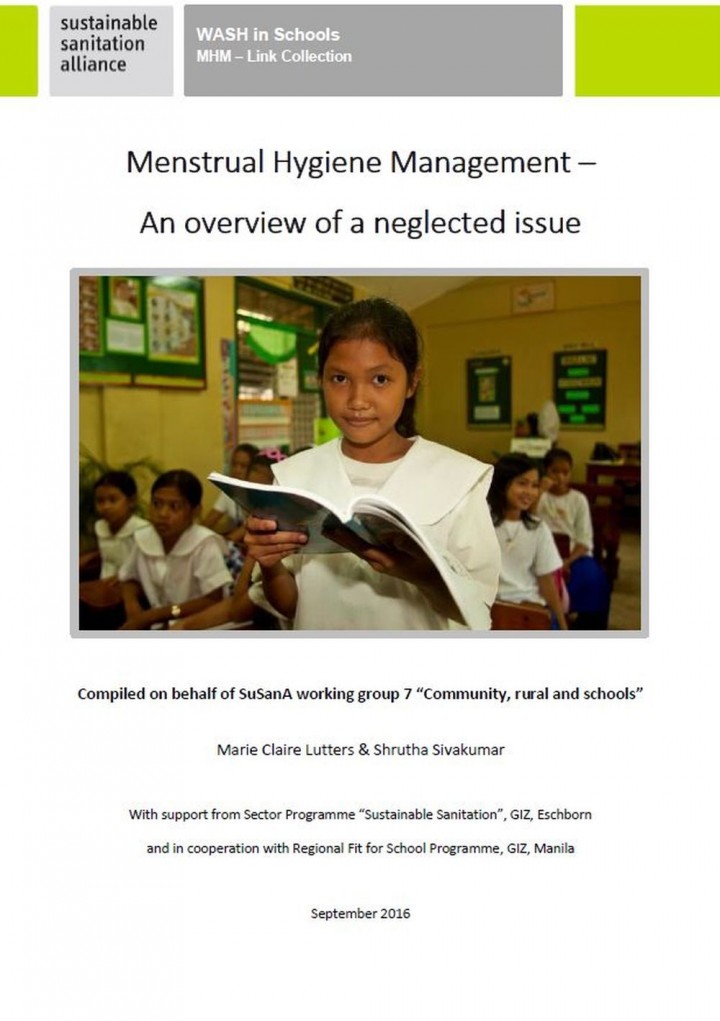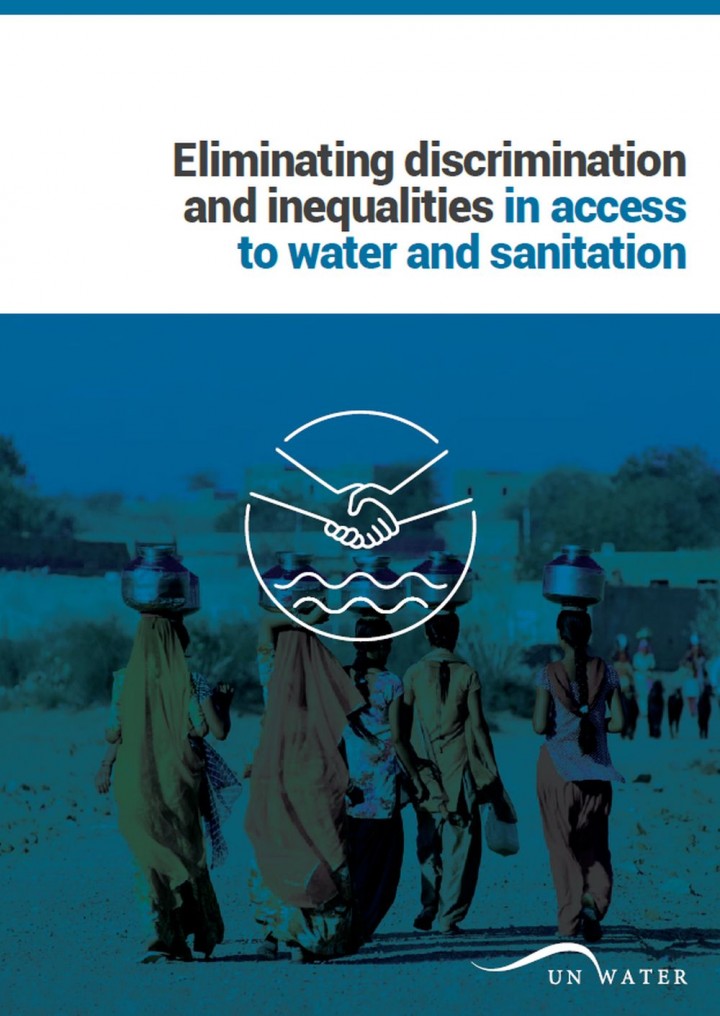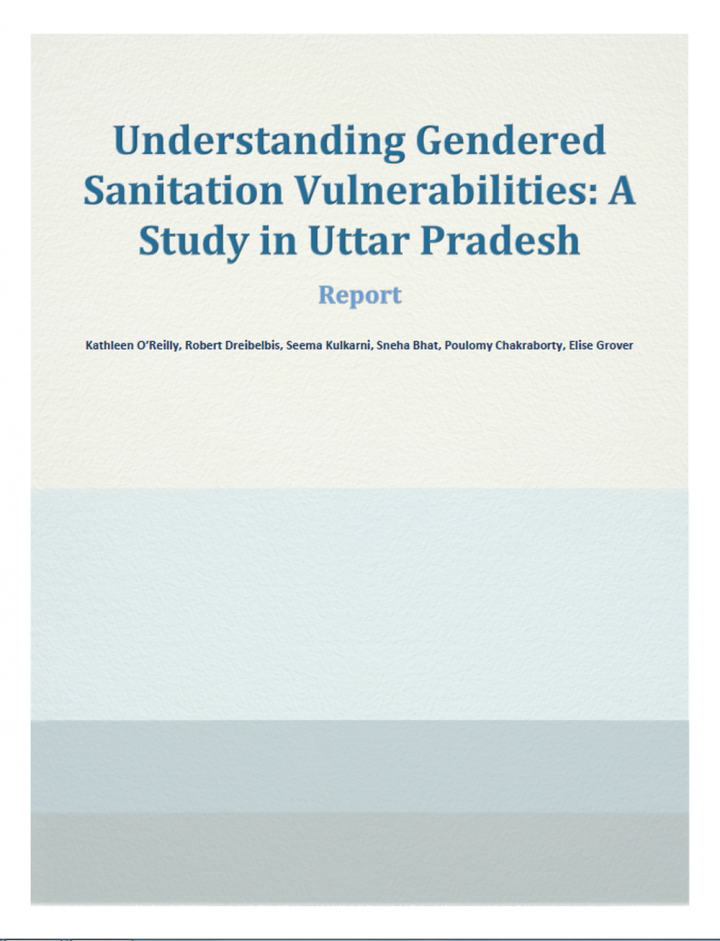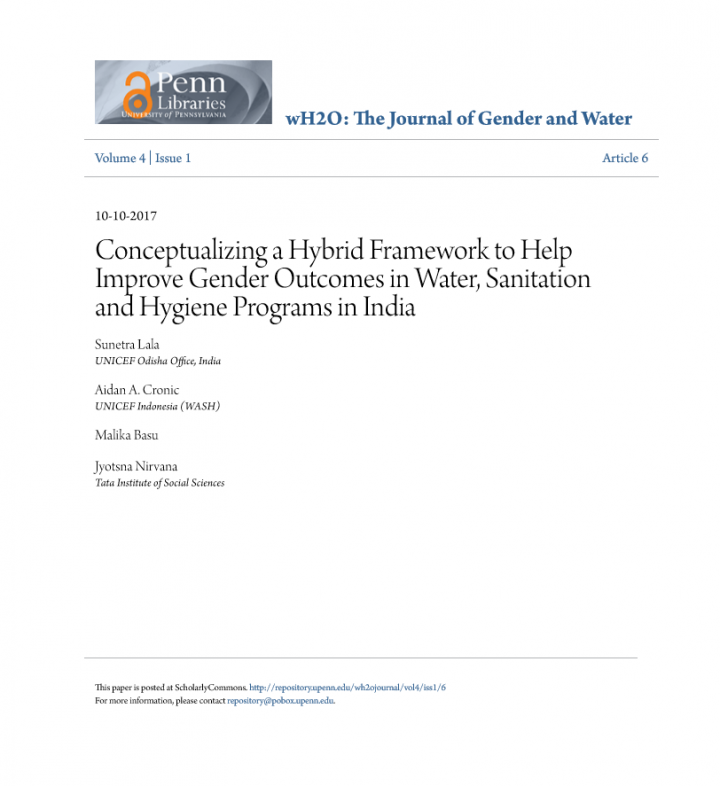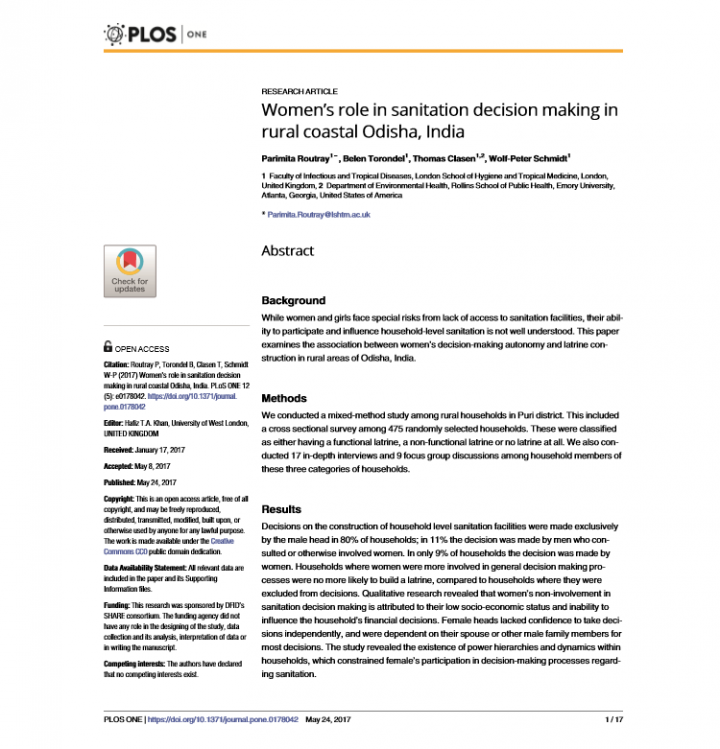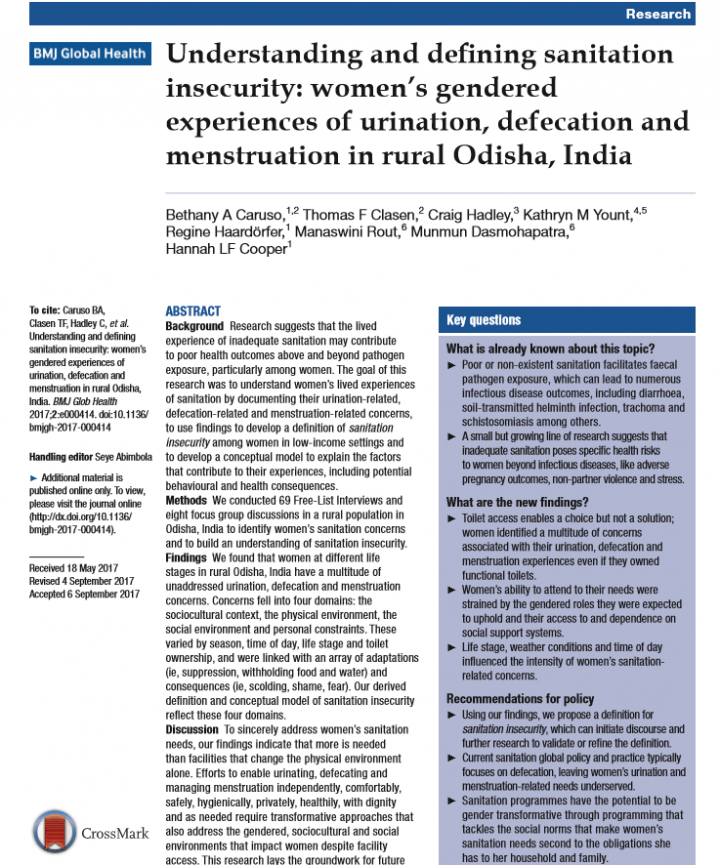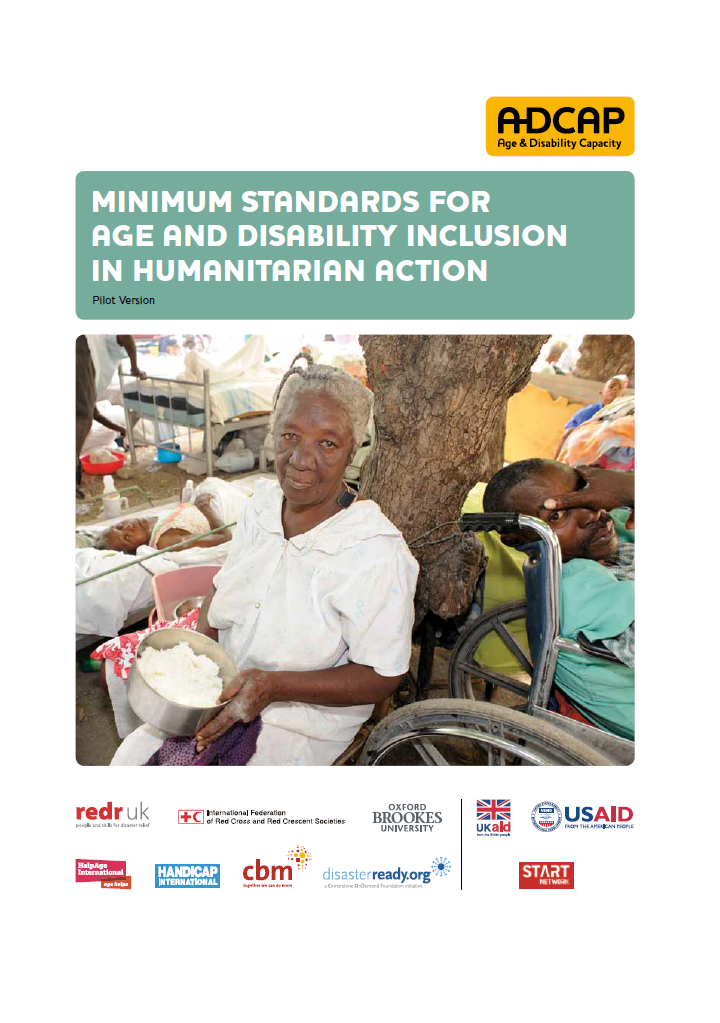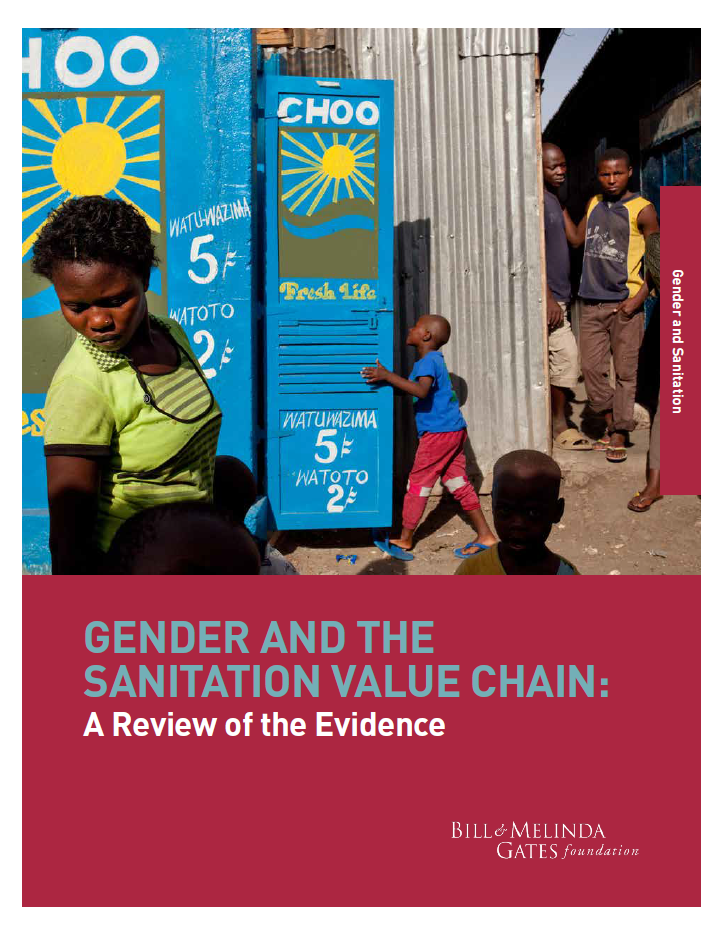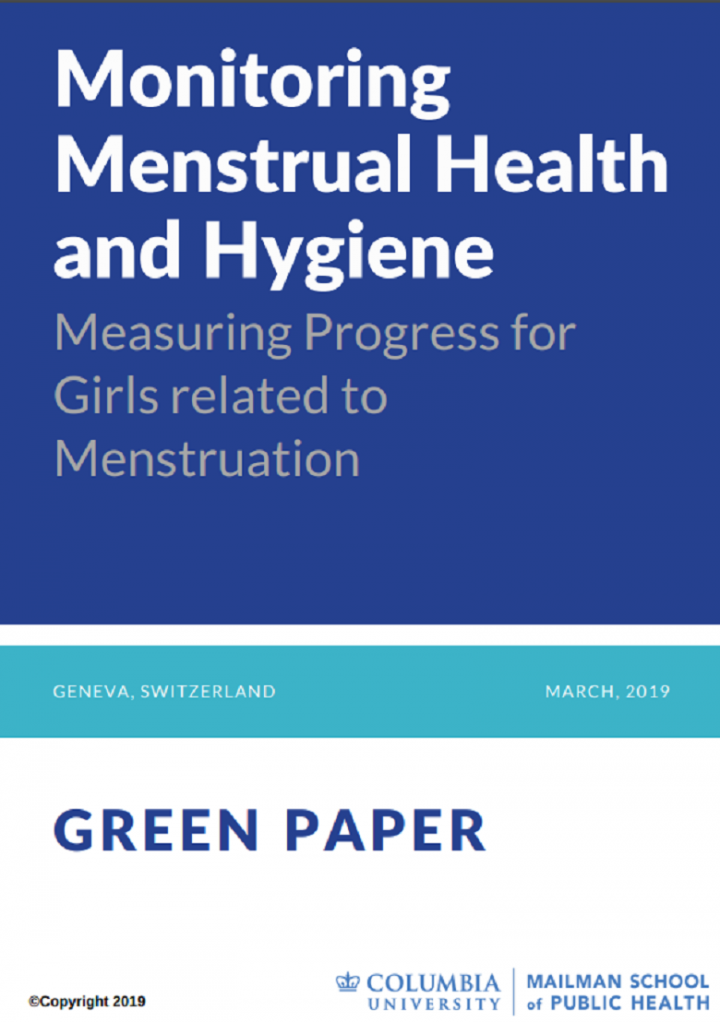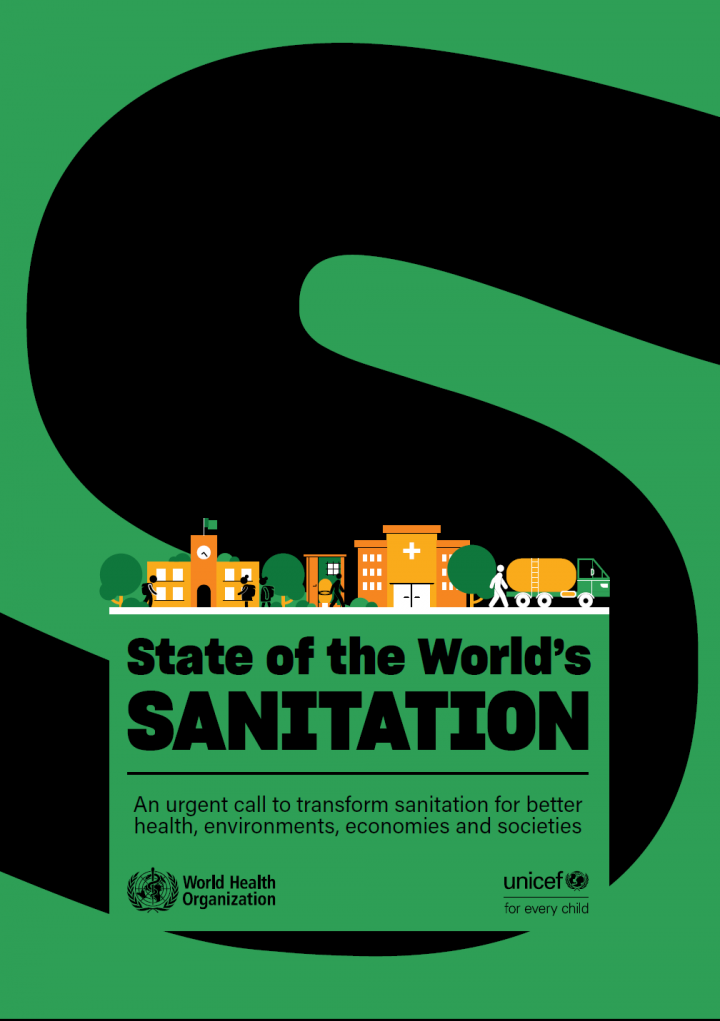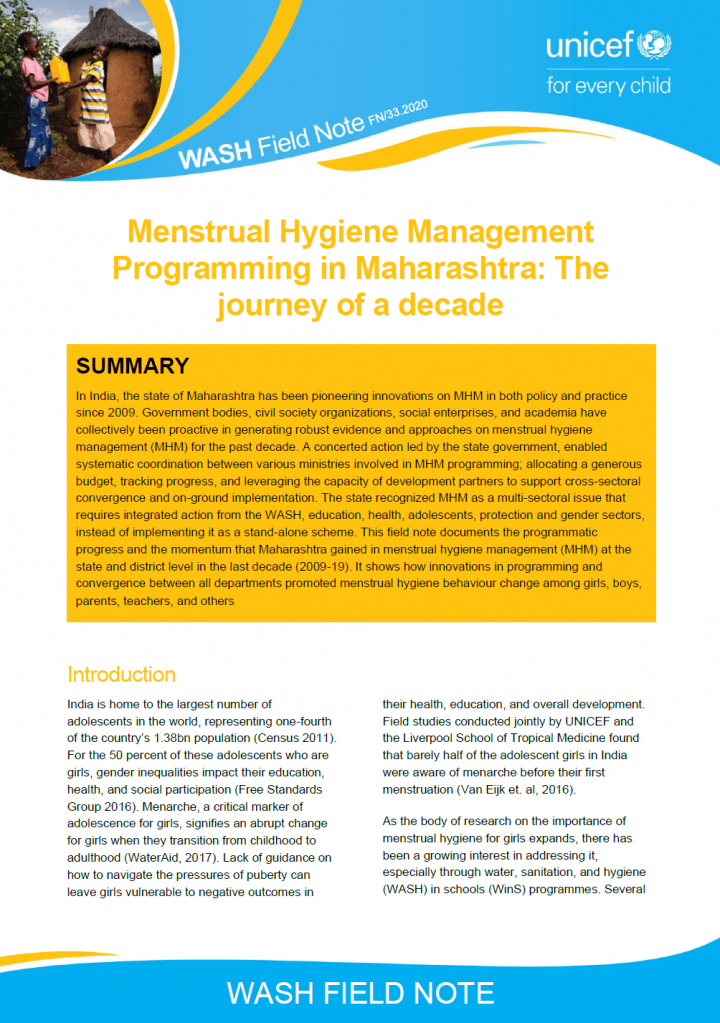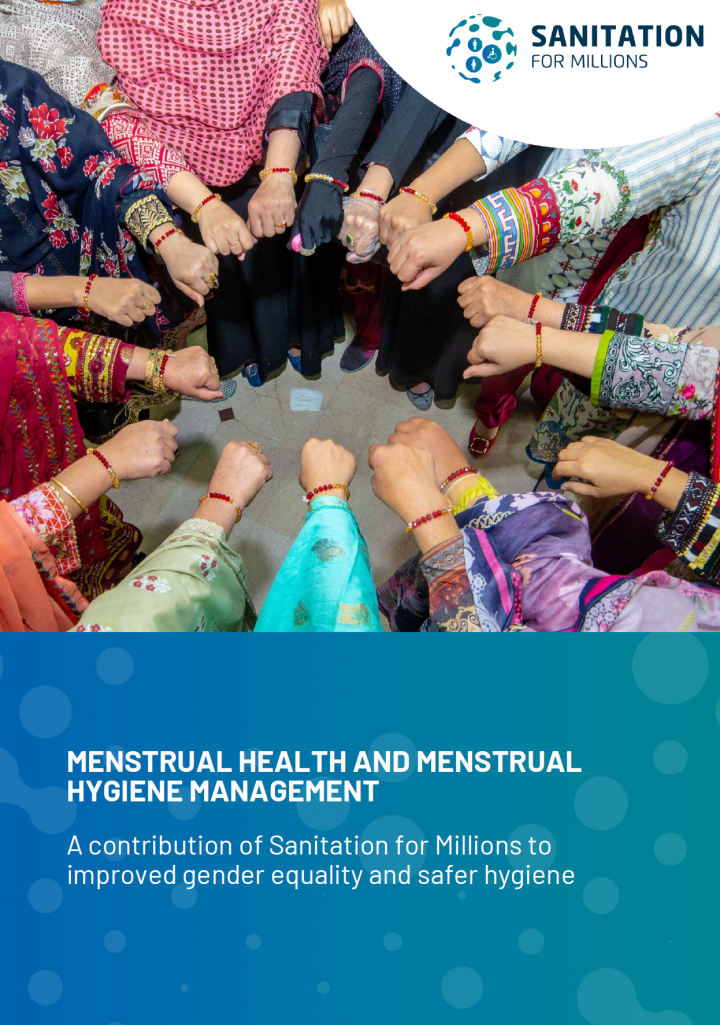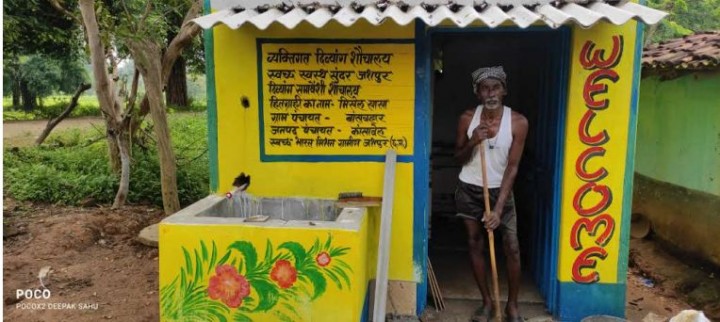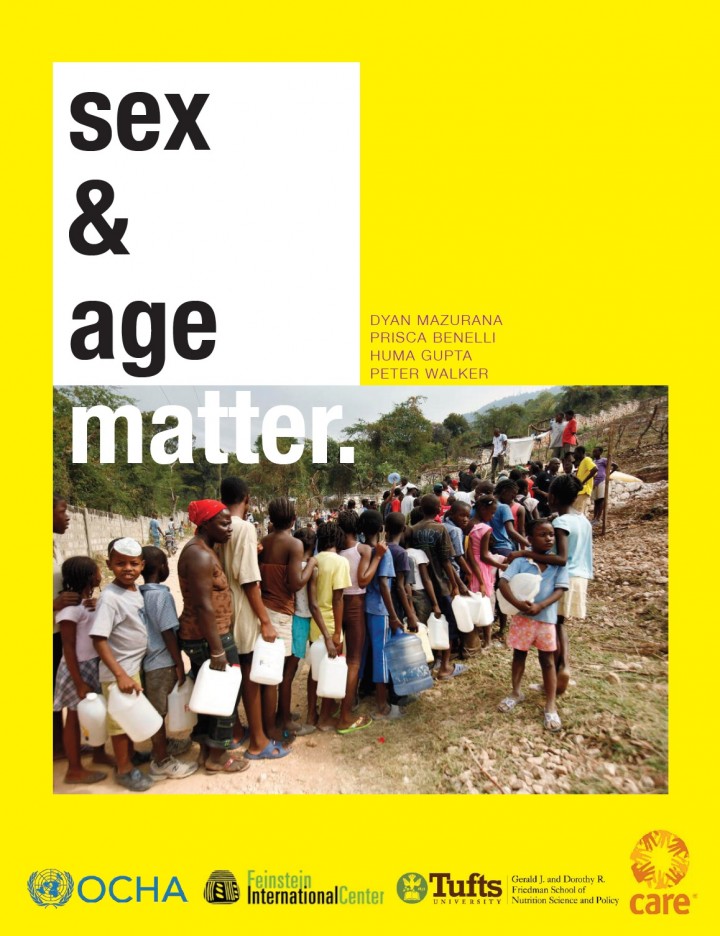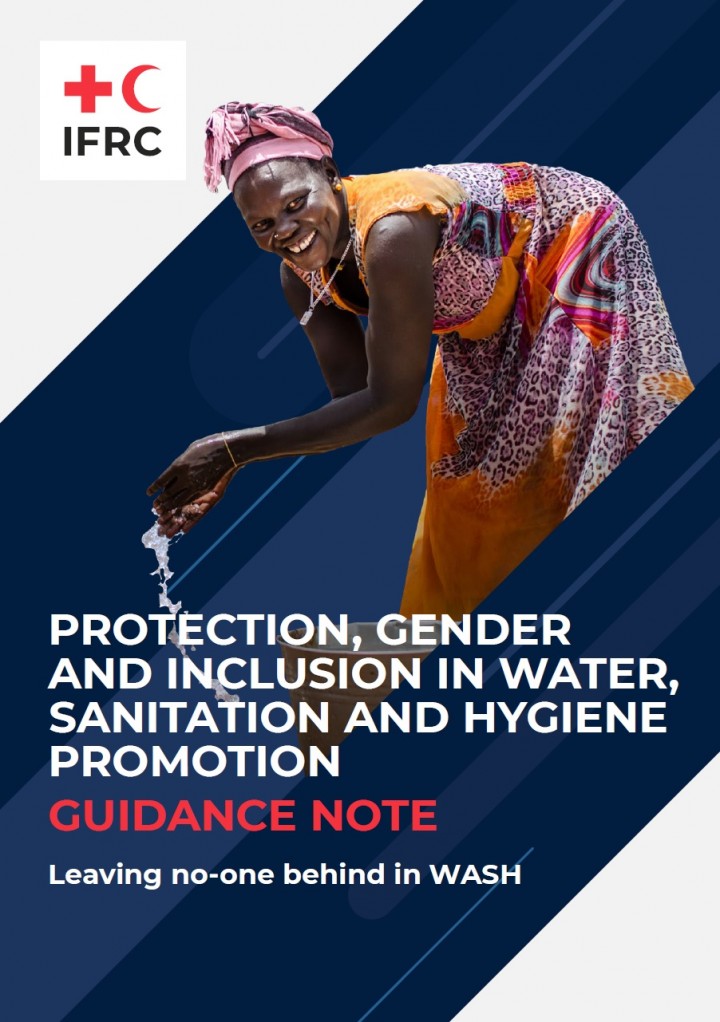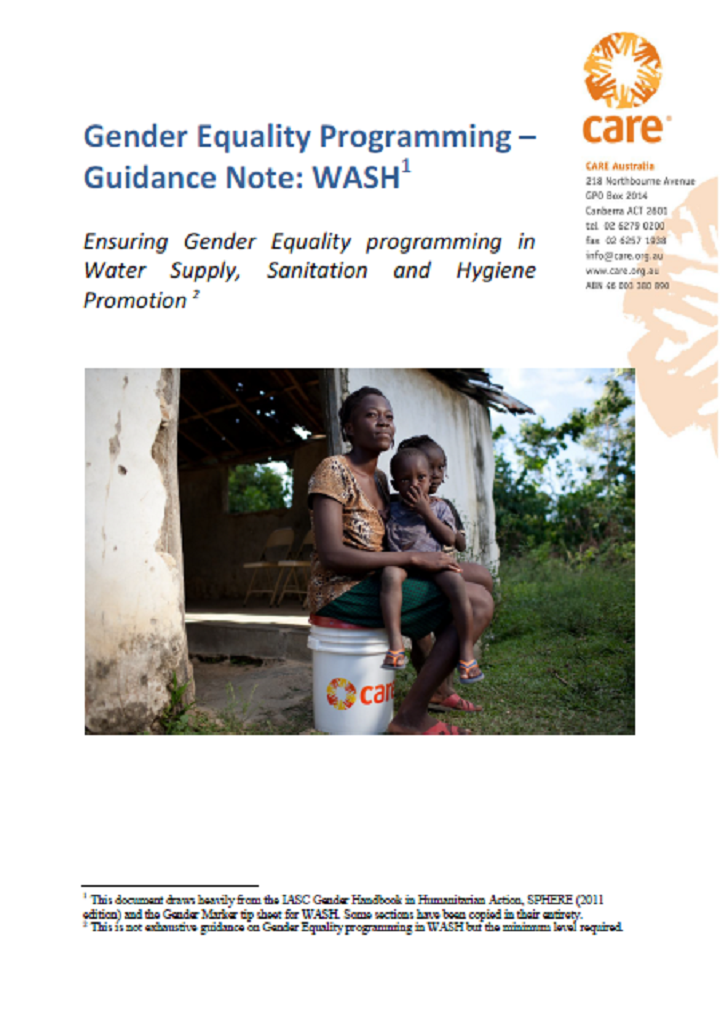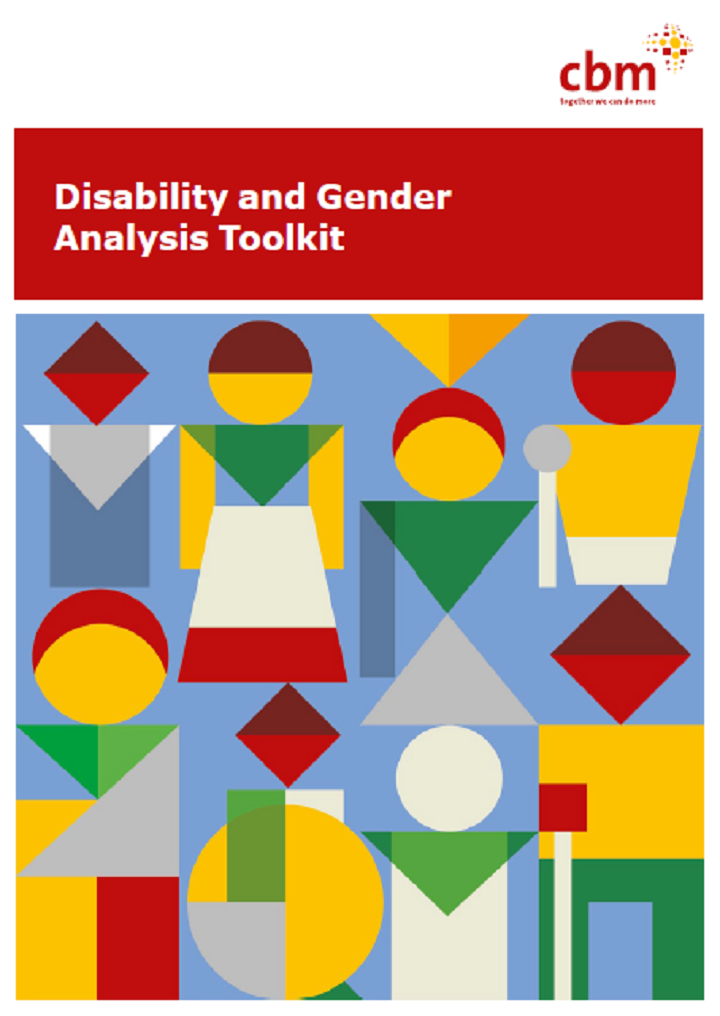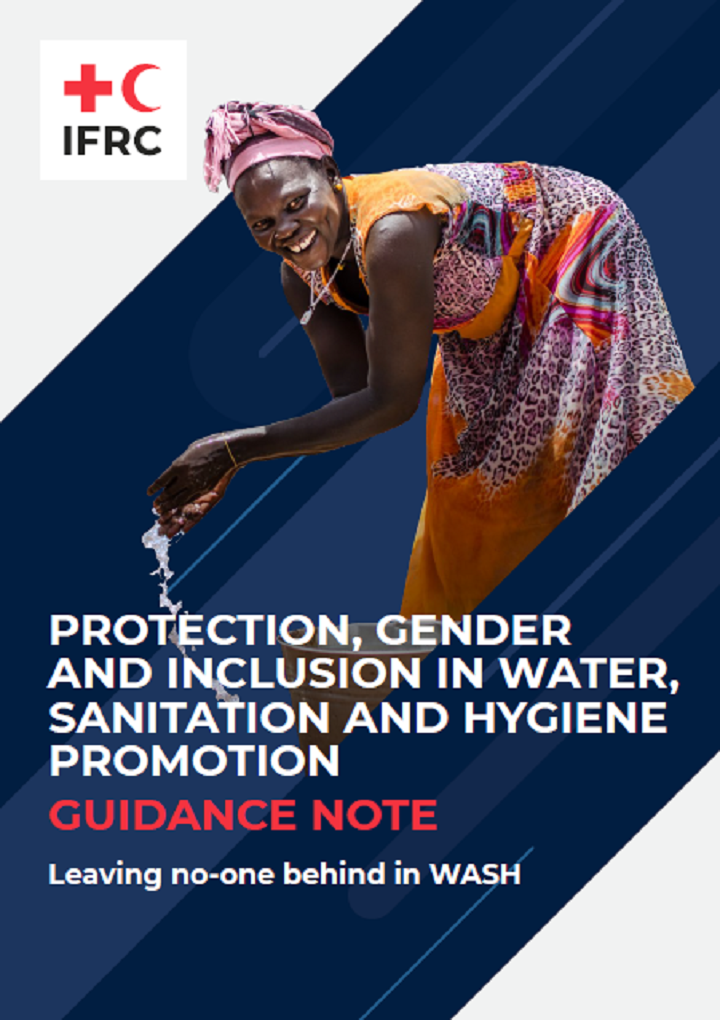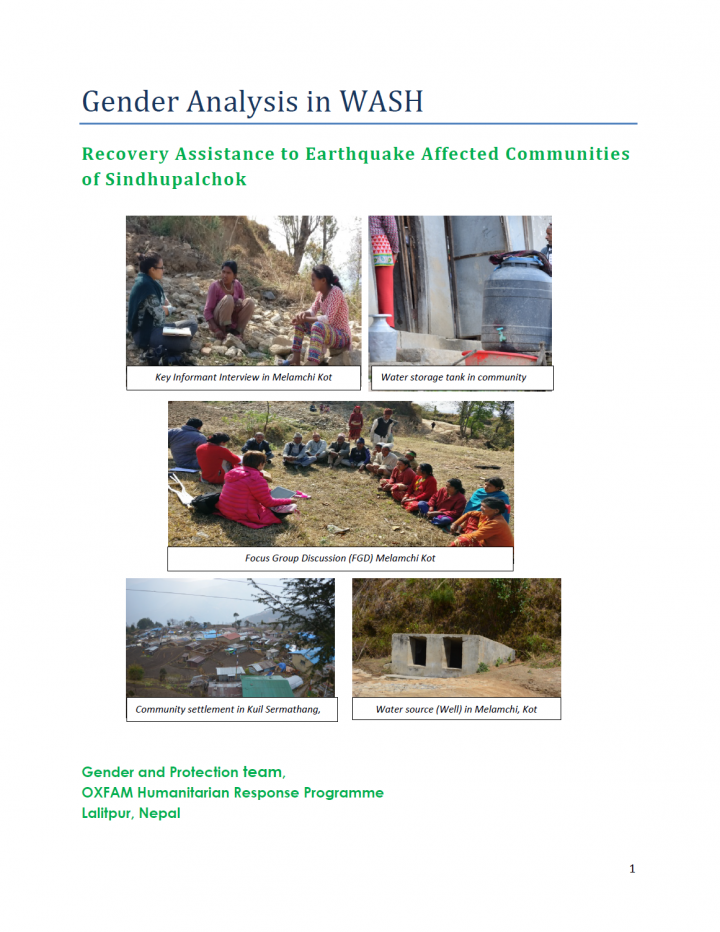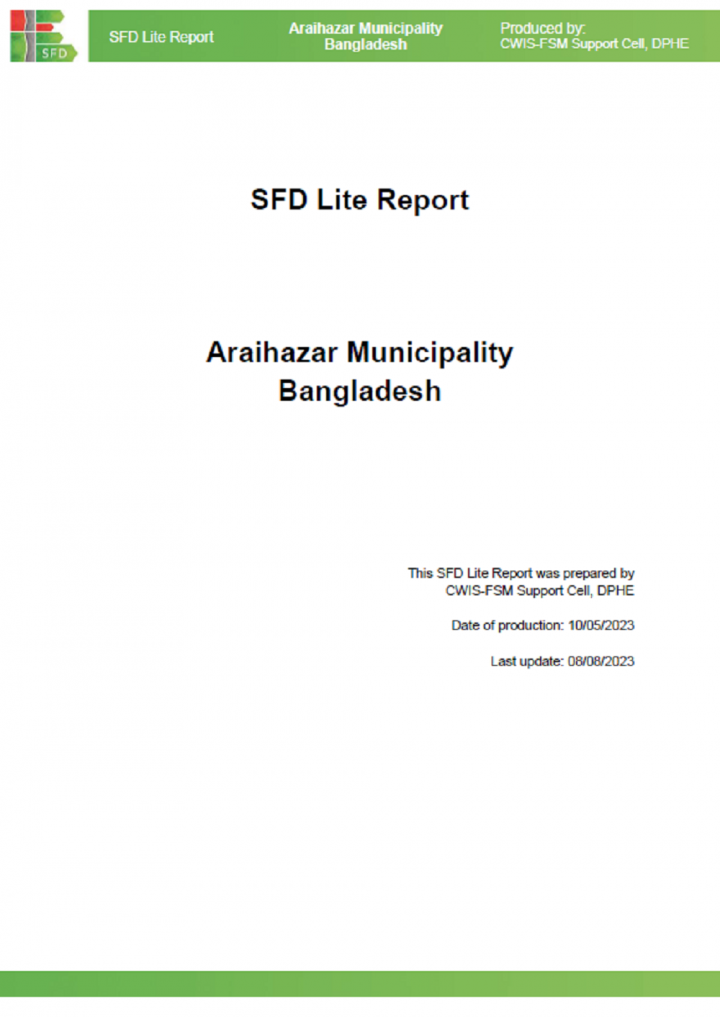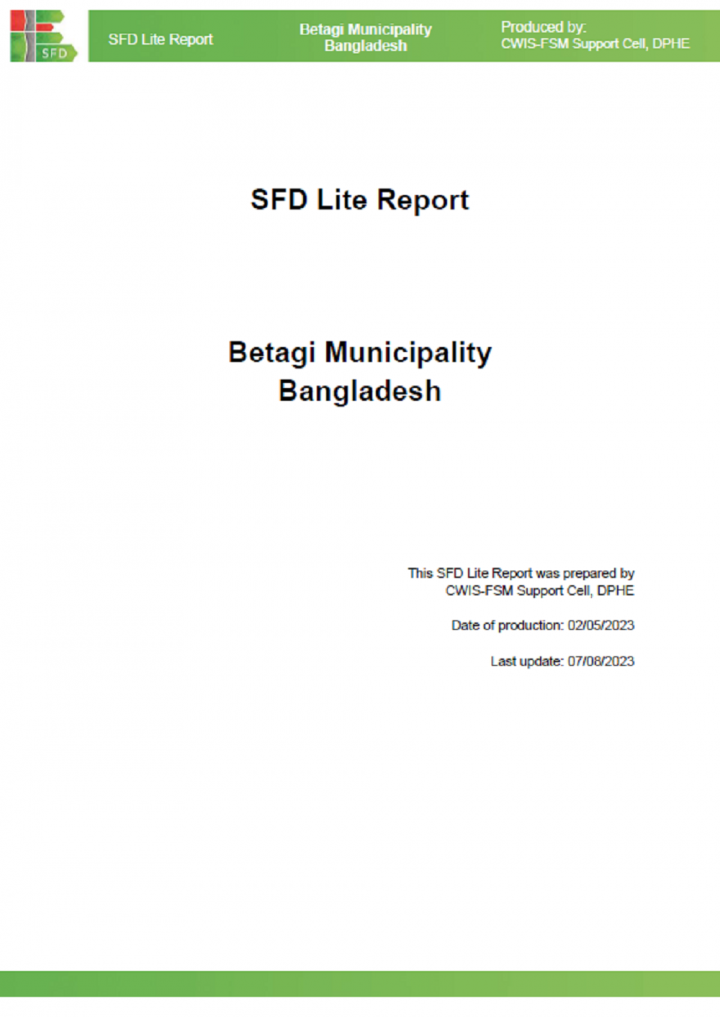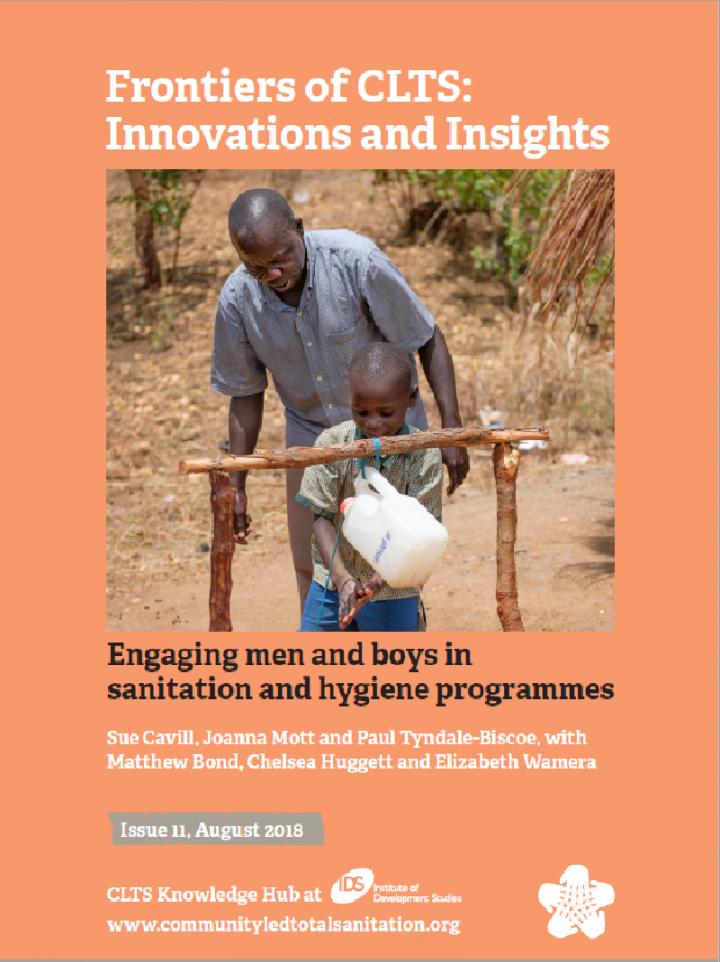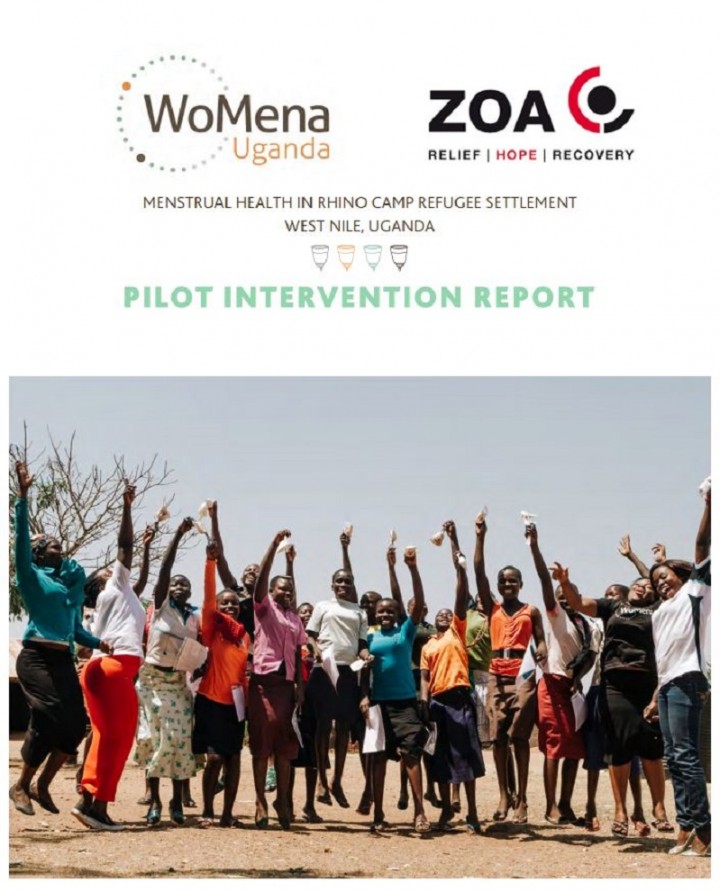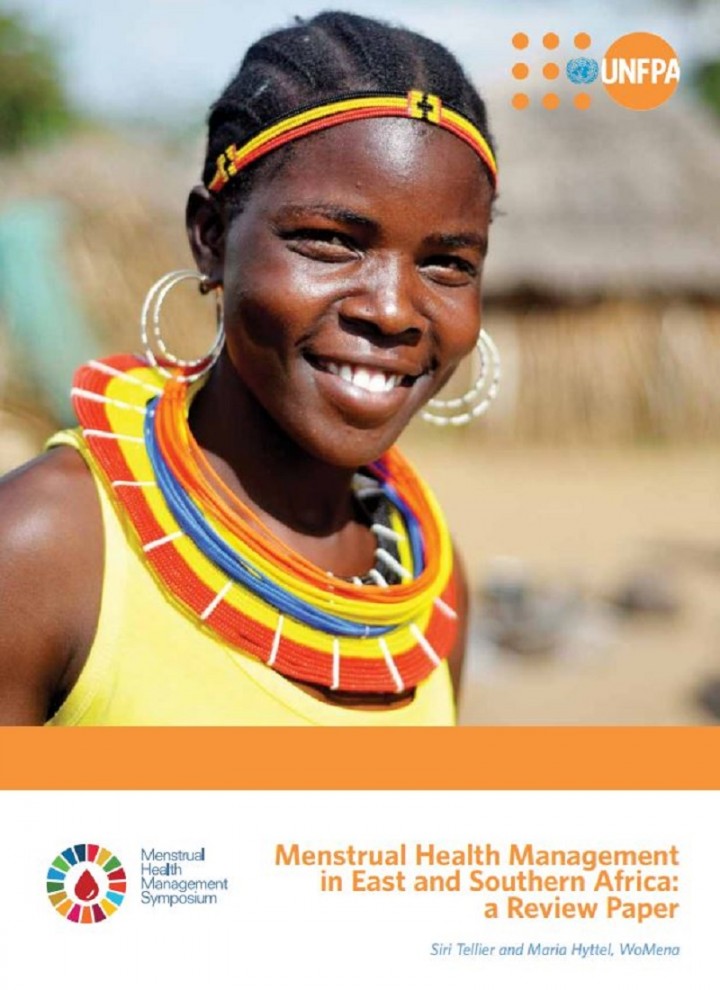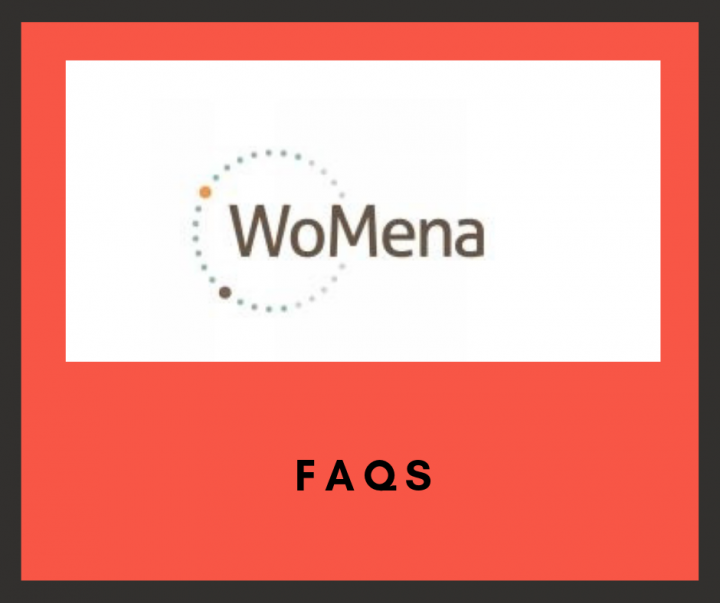Searching for information on Sanitation Workers?
The Sanitation Workers Knowledge + Learning Hub is the best source for all current news, trends, articles and updates on sanitation workers rights around the world.
Globally 52% of the female population is of reproductive age, meaning approximately 1.9 billion women and adolescent girls menstruate each month for between two and seven days.
A first examination of the MHM global landscape: literature, academic studies, main actors, and debates, by the Sector Programme Sustainable Sanitation of the Gesellschaft für Internationale Zusammenarbeit (GIZ) was …
This document UN-Water provides a summary on discrimination and inequality in the field of water and sanitation: it explains the concept of discrimination, details the human rights in regarding equity in the WASH sector and presents the course of action towards the elimination of discrimination and inequality.
This report is the outcome of a study which aimed at understanding rural women and girls' age-specific experiences of using and accessing sanitation. The study focussed on the accessibility of latrines and the conditions of sanitation experienced across age, religion, caste, etc. The study objectives were informed by research indicating that women and girls have unique needs, and that these needs …
A gender-sensitive approach to ensure equity in WASH programs can achieve positive and sustainable outcomes, including participatory decisionmaking and empowerment of women. Gender analysis frameworks have a long history in development practice to guide strengthened gender outcomes, and opportunities exist to learn from such frameworks to support implementation of WASH programs in developing …
While women and girls face special risks from lack of access to sanitation facilities, their ability to participate and influence household-level sanitation is not well understood. This paper examines the association between women’s decision-making autonomy and latrine construction in rural areas of Odisha, India.
A mixed-method study among rural households was conducted in Puri district. This …
Background Research suggests that the lived experience of inadequate sanitation may contribute to poor health outcomes above and beyond pathogen exposure, particularly among women. The goal of this research was to understand women’s lived experiences of sanitation by documenting their urination-related, defecation-related and menstruation-related concerns, to use findings to develop a …
The main aim of this document is to support the inclusion of older people and people with disabilities in the programmes of all humanitarian organisations. Recognising that some people have specific needs requiring particular expertise, these Standards also encourage partnership and coordination with specialist organisations and associations representing people with disabilities or older …
The gender and sanitation value chain report is the first in a series of evidence reviews commissioned by the Bill & Melinda Gates Foundation to highlight how gender influences development outcomes across sectors. This report seeks to uncover the evidence on gender differences in the sanitation value chain to show why gender matters across this sector. It includes an assessment of gender …
There is growing global momentum around addressing menstruation as an important health, education and gender equality issue. However, a critical barrier to making progress on addressing menstruation and the range of girls’ needs around this issue, is the lack of adequate validated measures related to measuring menstruation within global health and development. Measures are most needed that are …
The world is alarmingly off-track to deliver sanitation for all by 2030. Despite progress, over half of the world’s population, 4.2 billion people, use sanitation services that leave human waste untreated, threatening human and environmental health. An estimated 673 million people have no toilets at all and practise open defecation, while nearly 698 million school-age children lacked basic …
In India, the state of Maharashtra has been pioneering innovations on MHM in both policy and practice since 2009. Government bodies, civil society organizations, social enterprises, and academia have collectively been proactive in generating robust evidence and approaches on menstrual hygiene management (MHM) for the past decade. A concerted action led by the state government, enabled systematic …
Every day, millions of women and girls have to manage their menstruation, an entirely natural physiological process, yet one that often remains considered too ‘private’ to discuss, let alone manage confidently. Menstrual stigma remains entrenched in societies the world over, but the lack of adequate hygiene facilities and safe menstrual products is particularly acute in many developing …
Humanitarian aid is largely guided by anecdotes rather than evidence. Currently, the humanitarian system shows significant weaknesses in data collection, analysis and response in all stages of a crisis or emergency. As a result, the present humanitarian system is much less evidence-driven than it should be and than it would like to be.
To ensure that vulnerabilities, needs and access to …
This guidance note provides an overview of key protection, gender and inclusion (PGI) issues and practicalities to consider when assessing, designing, implementing and monitoring both long-term and humanitarian WASH programmes. It supports the practical application of the IFRC Minimum Standards for Protection, Gender and Inclusion in Emergencies by providing guidance to promote people’s …
The intent of this guidance note is to increase awareness among CARE’s WASH practitioners of gender issues, ensuring emergency WASH programs are viewed with a gender lens. The content is not original, rather an amalgamation of various guidance and best practice, distilled here to provide a more concise reference tool for CARE’s WASH staff to meet minimum WASH and gender equality standards.
A magnitude 7.8 earthquake struck Nepal on 25 April 2015. This was followed by several powerful aftershocks, including a major one (7.3 magnitude) on 12 May, 2015. A total of 8,855 people were confirmed dead and a further 22,309 suffered injuries as a result of the earthquakes. Out of Nepal’s 75 districts, 14 districts which were home to 5.4 million Nepalese people were among the most affected. …
Araihazar Municipality is situated within the Araihazar Upazila of Narayanganj District, under Dhaka Division. At present, Araihazar Municipality has 65 km of road network and 13.3 km of drain network. Araihazar is located between latitudes 23°40' and 23°53' north and 90°35' and 90°45 east. It is bordered on the north by the upazila of Narsingdi Sadar, on the west by the upazilas of Rupganj …
Betagi Municipality is situated within the Betagi Sub-District (Upazila) in Barguna District (Zila), which is under Barishal Division. The geographical coordinates of Betagi are between 22º 09.45' and 22º 11.52' N and between 90º 11.55' and 90º 13.12' east longitude . It is bordered on the north by the Upazilas of Bakerganj and Rajapur, on the south by the Upazila of Barguna Sadar, on the …
Men’s and boys’ active and positive engagement in sanitation and hygiene (S&H) means improving sustainable outcomes, as well as increasing the potential for redistribution of unequal domestic and care responsibilities from women to men. Discussions around gender in S&H (and elsewhere) often focus on the roles, positions or impacts on women and girls, however this issue of Frontiers of CLTS …
A Menstrual Health pilot project by WoMena and ZOA implemented among South Sudanese refugees and host population in Rhino Camp Refugee Settlement in northern Uganda. The pilot involved 4 primary schools, including students, parents and teachers, over 6 months. 4 different distribution models were applied among the participants; one school got MCs only, one school got reusable pads only, one …
The review paper aims to identify possible linkages to SRHR-related issues, and to provide an overview of MHM policies and programs in the ESA region, with a focus on education, school and community-based sexuality education, WASH, sexual and reproductive health, workplace support and humanitarian programming, as well as opening up the discussion regarding marginalized groups of women and girls …
WOMENA SUMMARY AND RECOMMENDATIONS
Many women develop urogenital infections, such as bacterial vaginosis or yeast infections, at some point in their life. Prevalence rates of 20-30% or more have been documented in both high-, middle- and low-income countries. Many infections are asymptomatic, meaning that those who have the infection do not know.
Menstruation is a normal, physiologic …

